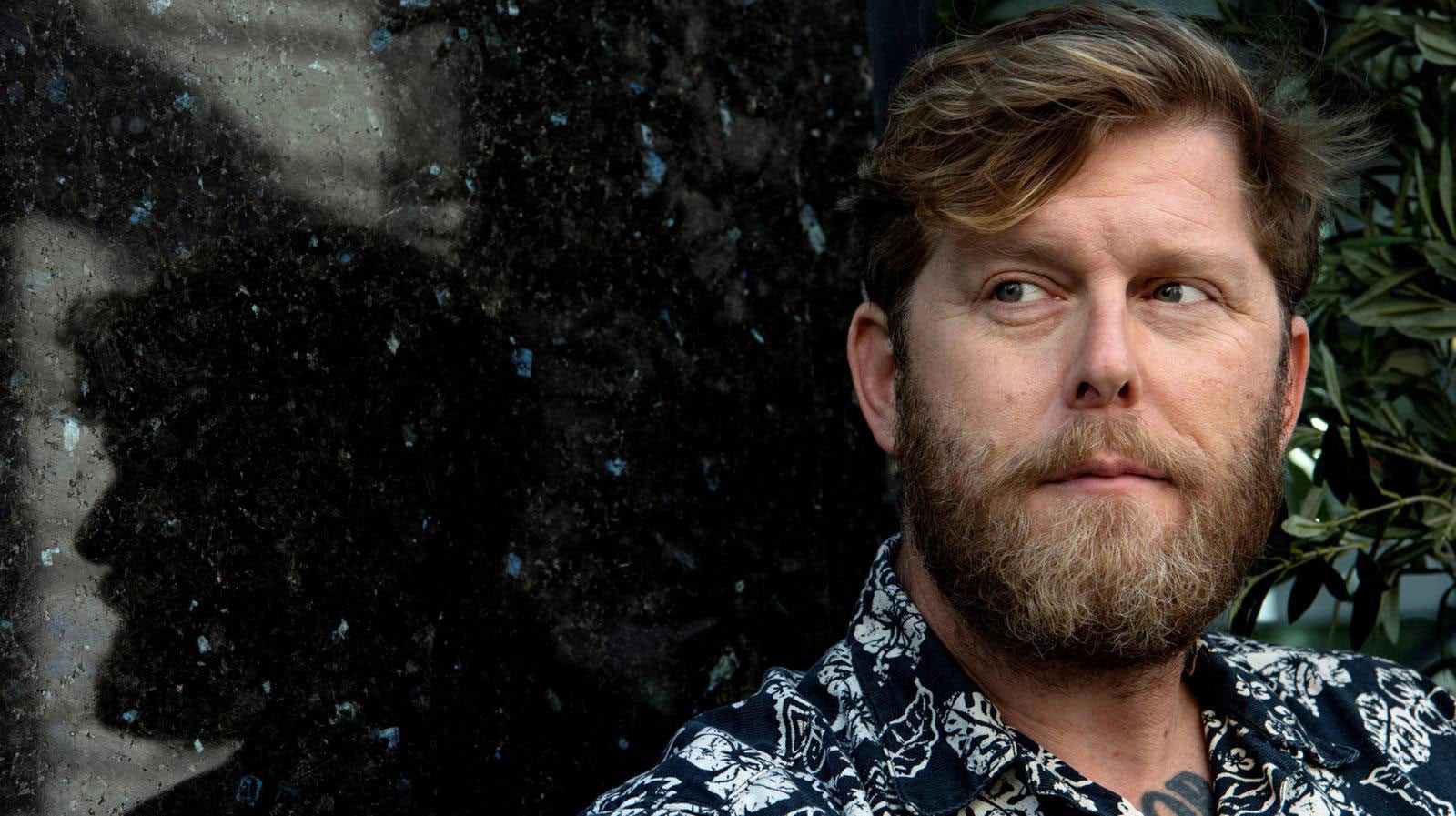Sophomores Anaya Akpalu and Tomi Akisanya gave Martin Luther King Jr. Day speaker Arno Michealis the perfect introduction, together reading a powerful poem they co-wrote called “Change” (video here). Describing changes over generations, and more personally in our own perspectives, the poem teed up the idea that we all have the option to alter who we are.
As Michaelis took the stage, he acknowledged that change is inevitable. He told the audience that as a Buddhist, he believes only two things are universally consistent: change and suffering.
Change was what brought him to Williston. A former neo-Nazi skinhead, he turned his life around and now works against racism.
Michaelis had a relatively normal childhood, however, his father abused alcohol, he said. He was a bully in kindergarten, and he kept ramping up antisocial behavior throughout his school years. “I got a rush when teachers got mad at me,” he said. “It would eventually get boring, so I kept escalating. It was like substance abuse.”
When he was 16, he dropped out of high school, became an alcoholic himself, and immersed himself in rage, eventually founding a neo-Nazi skinhead gang. He held onto that ideology for seven years, eventually becoming lead singer in a racist band, Centurion, and became known in white supremacist circles the world over. What made it possible was practice. “Practice is what makes the unfamiliar familiar,” he said. “Fortunately, for most of us, hate and violence are unfamiliar things. When hate and violence are normal, things like love, forgiveness, and kindness are scary. That’s what it’s like to be a racist.”
Should we then help racists and feel sorry for them? he asked rhetorically. “Well, yes actually. Racists want people to hate them. And racism has caused unbelievable amounts of horror and suffering over the last 500 years.”
Therefore, without condoning racist behavior, we can recognize that racist people are people and have the capacity for change, as Michaelis did. By using compassion and kindness, we disarm haters. Here, he brought up the work of Dr. Martin Luther King Jr. “As Dr. King so beautifully explained, more hate is not going to result in less suffering.”
Michaelis left his hate group, Hammerskin Nation, in 1994, when guilt and personal circumstances combined with what he described as exhaustion from hating all the time. He had become a single dad, and a friend had been killed. He turned against his former ways.
But it took another push to make him a warrior for peace. When a white supremacist from the Hammerskin Nation gang killed six Sikhs in a temple in Wisconsin, Michaelis and Pardeep Singh Kaleka, the son of one of the victims, began working together to blunt the force of hate.
Kaleka introduced Michaelis to the “weaponization” of forgiveness. “Forgiveness is vengeance,” he said. “I’m not going to waste my energy on you,” he said, assuming the voice of his friend speaking to the killer of his father. “I need that energy to be a father to my four children, the husband to my wife, the son to my grieving mother, who lost her husband of 30 years.”
By wielding forgiveness, Kaleka was waging a “fight for humanity.”
Kaleka and Michaelis founded an organization Serve2Unite, which aims to divert young people from violent extremist ideologies, gun violence, school shootings, bullying, and substance abuse, along with other forms of self-harm.
Michaelis talked about another friend who is using love and compassion to end hate, musician and activist Daryl Davis, a black man who goes to Ku Klux Klan meetings and befriends Klansmen. “He’s gotten dozens and dozens to leave the Klan,” said Michaelis. His weapons are building a relationship, listening, talking.
Compassion and kindness were instrumental in causing Michaelis to turn away from hate. He urged the audience to pick up these “weapons” and fight alongside him.

